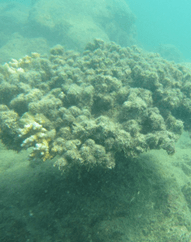Reef quality reviewed
 A comprehensive review on the effects of land-based activities on the Great Barrier Reef's water quality and ecosystem condition has been released.
A comprehensive review on the effects of land-based activities on the Great Barrier Reef's water quality and ecosystem condition has been released.
The 2022 Scientific Consensus Statement by C2O Consulting and funded by the Australian and Queensland governments involves over 200 experts and drawing from more than 4,000 publications.
The report reveals that historical and ongoing land management practices have significantly impaired the water quality of the Great Barrier Reef.
Experts identified several key issues, including extensive vegetation degradation, altered hydrology, increased erosion, and the expansion of fertilised land uses, urban centres, and coastal developments.
Pollutant loads from catchment areas to the Reef have increased dramatically compared to pre-development levels.
Fine sediments have increased by 1.4 to 5 times, while dissolved inorganic nitrogen has increased by 1.5 to 3 times, varying by basin.
“The 2022 Scientific Consensus Statement is an exemplar of the academic methods for reaching scientific consensus,” said Dr Cathy Foley, Australia’s Chief Scientist.
“The public can trust the processes used to develop the Statement, and the conclusions can be relied upon and trusted to inform decision-making.”
The statement highlights several critical impacts on the Reef's ecosystems.
Elevated levels of fine sediments, nutrients, and pesticides are causing detrimental effects, particularly in freshwater, estuarine, coastal, and inshore marine ecosystems.
Human-induced climate change is identified as the primary threat to the Reef, with poor water quality exacerbating these climate-related impacts.
The report says water quality improvement targets must be reached within the next ten years to support healthy and resilient ecosystems.
It also stresses the need for significant scaling up of land management practices to achieve substantial pollutant reductions.
This includes prioritising pollutant hotspots and enhancing knowledge about the costs and benefits of these practices.
More than 200 experts contributed to the development of the statement, including significant input from institutions such as James Cook University, CSIRO, the Australian Institute of Marine Science (AIMS), Griffith University, and the University of Queensland.
All outputs from the 2022 Scientific Consensus Statement are available online.








 Print
Print